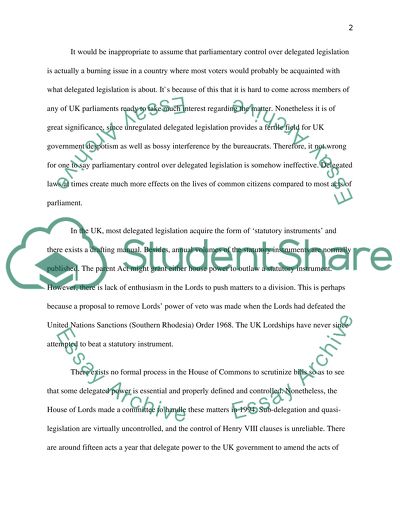Cite this document
(“Critically discuss the effectiveness of parliamentary and judicial Essay”, n.d.)
Critically discuss the effectiveness of parliamentary and judicial Essay. Retrieved from https://studentshare.org/law/1629479-critically-discuss-the-effectiveness-of-parliamentary-and-judicial-cantrols-over-delegated-legislation-in-the-english-legal-system
Critically discuss the effectiveness of parliamentary and judicial Essay. Retrieved from https://studentshare.org/law/1629479-critically-discuss-the-effectiveness-of-parliamentary-and-judicial-cantrols-over-delegated-legislation-in-the-english-legal-system
(Critically Discuss the Effectiveness of Parliamentary and Judicial Essay)
Critically Discuss the Effectiveness of Parliamentary and Judicial Essay. https://studentshare.org/law/1629479-critically-discuss-the-effectiveness-of-parliamentary-and-judicial-cantrols-over-delegated-legislation-in-the-english-legal-system.
Critically Discuss the Effectiveness of Parliamentary and Judicial Essay. https://studentshare.org/law/1629479-critically-discuss-the-effectiveness-of-parliamentary-and-judicial-cantrols-over-delegated-legislation-in-the-english-legal-system.
“Critically Discuss the Effectiveness of Parliamentary and Judicial Essay”, n.d. https://studentshare.org/law/1629479-critically-discuss-the-effectiveness-of-parliamentary-and-judicial-cantrols-over-delegated-legislation-in-the-english-legal-system.


